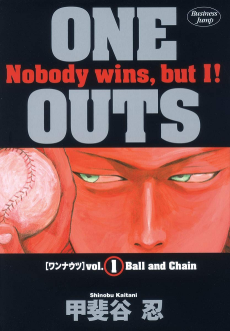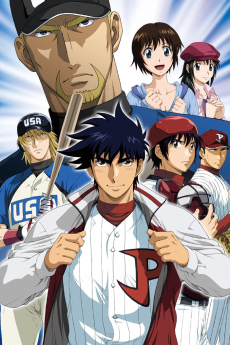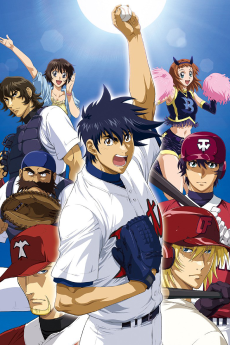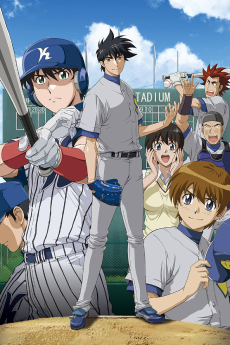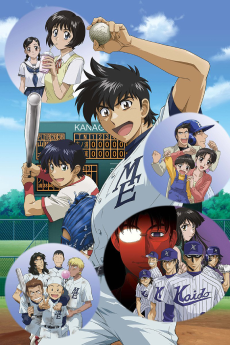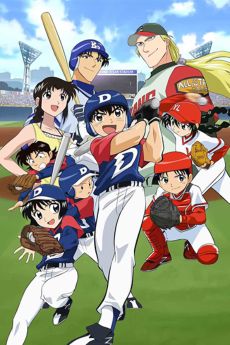ONE OUTS
STATUS
COMPLETE
EPISODES
25
RELEASE
April 1, 2009
LENGTH
23 min
DESCRIPTION
The story begins when Hiromichi Kojima, the star batter of the fictional Lycaons in Japan's Pacific League, heads to the southern Japanese island of Okinawa to train and bring himself out of a slump. There, he meets Toua Tokuchi, a 134-kmph (83 miles per hour) pitcher and the undisputed king of a gambling form of baseball called "One Out." At Kojima's urging, Tokuchi signs up with the Lycaons under an unusual contract: he gets 5,000,000 yen (about US$46,000) for every out he pitches, but loses 50,000,000 yen (US$460,000) for every point he gives up.
(Source: Anime News Network)
CAST
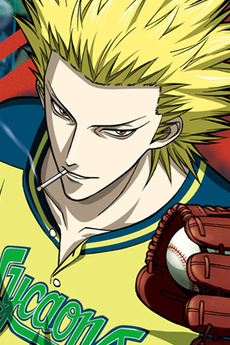
Toua Tokuchi
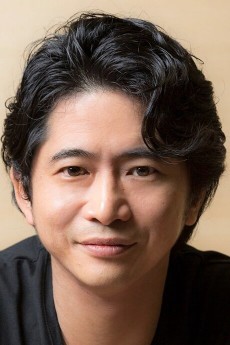
Masato Hagiwara
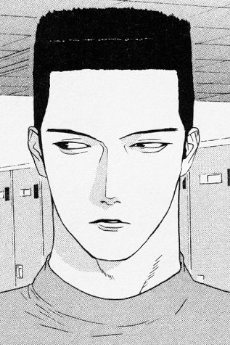
Hiromichi Kojima
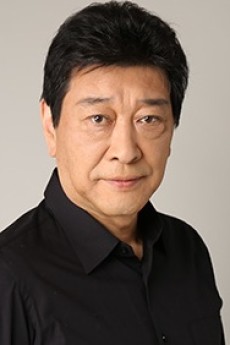
Tsutomu Isobe
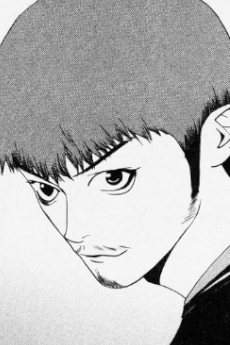
Satoshi Ideguchi
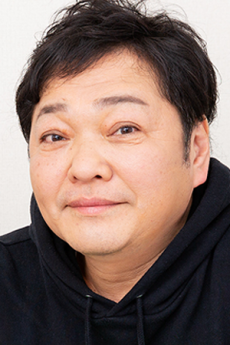
Kappei Yamaguchi
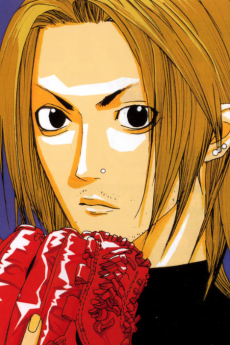
Itsuki Takami
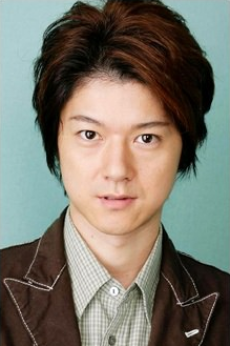
Masaya Matsukaze
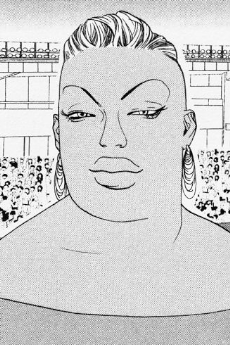
Big Mama

Toshiko Fujita
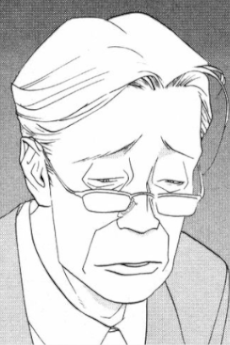
Mitsuo Oikawa
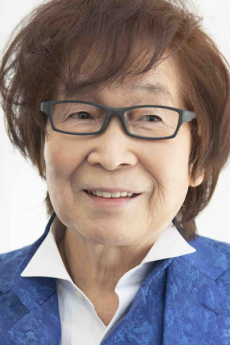
Toshio Furukawa
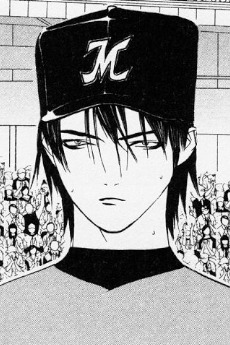
Junichi Kawanaka
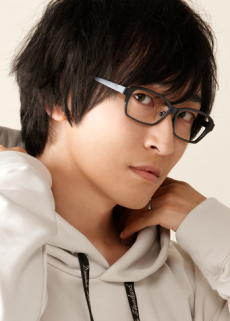
Takuma Terashima

Tsuneo Saikawa
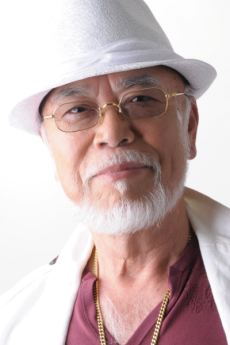
Kenji Utsumi

Dennis Johnson
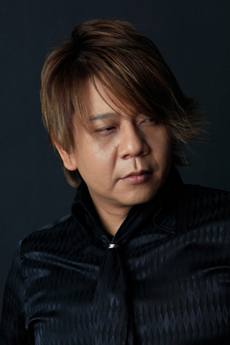
Taiten Kusunoki
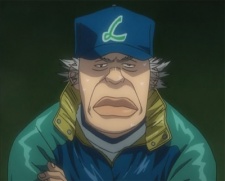
Yuuzaburou Mihara
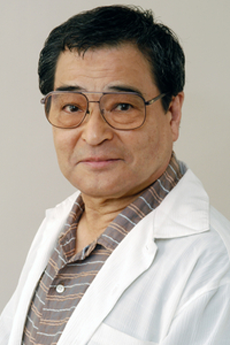
Shouzou Iizuka
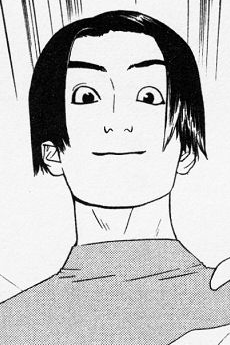
Imai
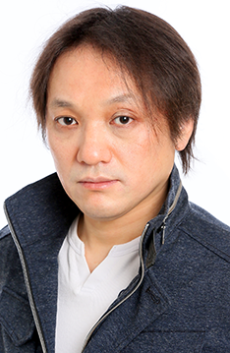
Tooru Nara
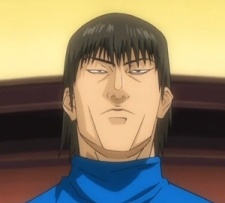
Yoshida

Tomohiro Nishimura
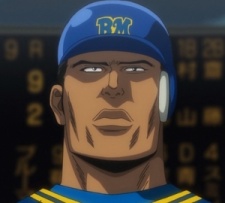
Pedro Rodrigo
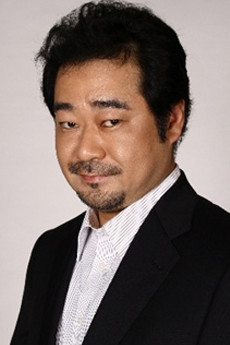
Masaki Aizawa
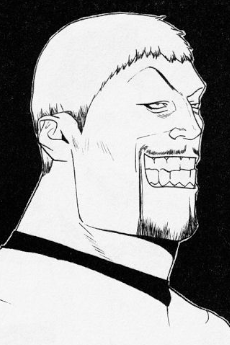
Brooklyn

Ryuuzaburou Ootomo
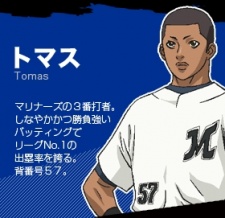
Tomas
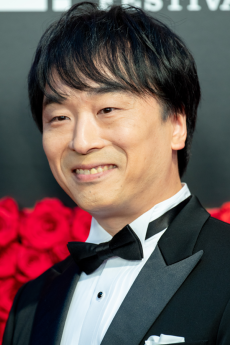
Tomokazu Seki
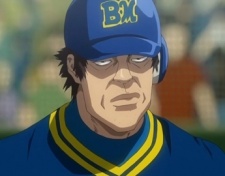
Kawabata
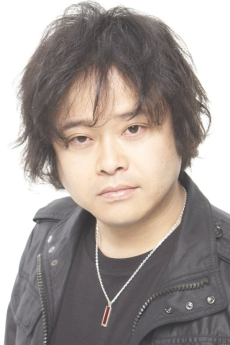
Nobuyuki Hiyama
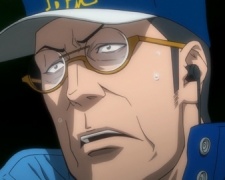
Takashi Shirooka
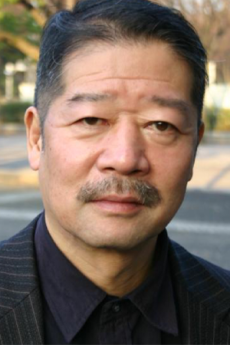
Shinpachi Tsuji
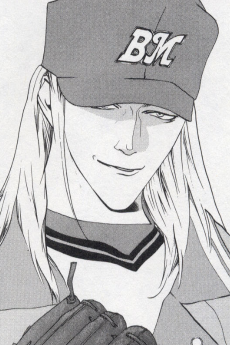
Scott Williams
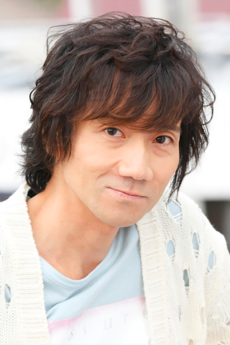
Shinichirou Miki
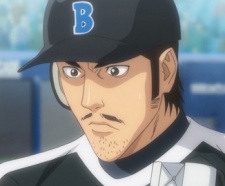
Kinouchi
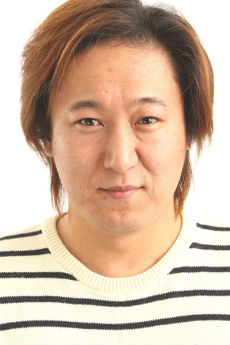
Yasuyuki Kase
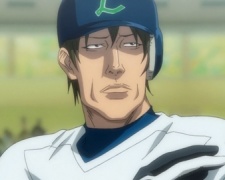
Arai
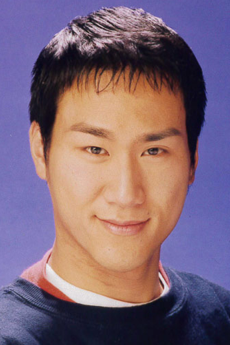
Shintarou Oohata
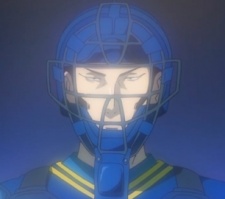
Sawamura

Yasuyuki Kase
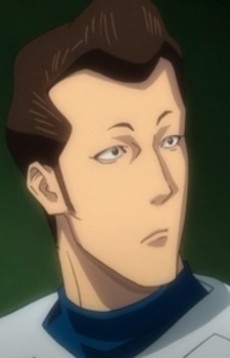
Shin Fujita
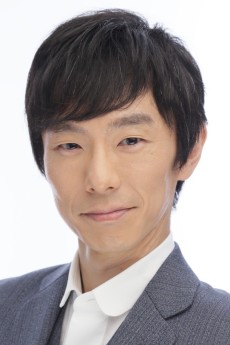
Chikara Ousaka
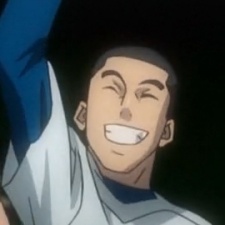
Nishimura

Yukitoshi Tokumoto
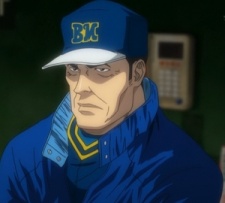
Tendou Tetsuji
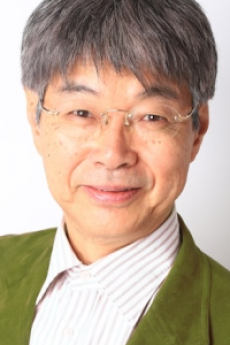
Takurou Kitagawa
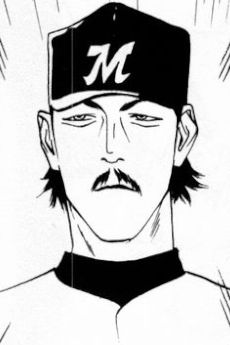
Kira
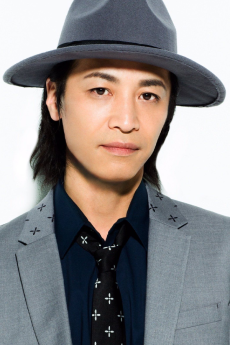
Kousuke Toriumi
EPISODES
Dubbed
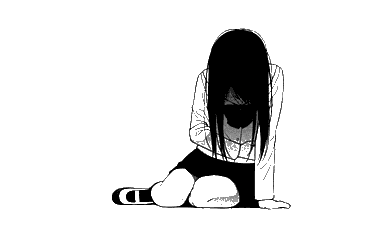
Not available on crunchyroll
RELATED TO ONE OUTS
REVIEWS

Logia
87/100Baseball with a Psychological approachContinue on AniListDackno's Review of - One outs
The idea of watching an animation of a sport you'd not see me on the end of a remote, sat on my couch with an ice cool beer chugging away to is a little worrying. Is it because it's an animated gloss over of the real thing that i compromised so much? Well not exactly. First of, One Outs is a psychological sports anime. It focuses more on the strategy behind each ball pitched, every bat swung and delves into the minds of those playing the ball game. The main character is a mastermind to everything that happens. He seems to have an answer for everything and thinks through all of the possibilities that some ordinary Joe's would not pick up on. and for that i believe makes this sports anime a sub category of its own, granted every sport has a psychological aspect to it but this one really does make it it's own. I feel that the anime did exactly what it intended to do. Show the high intensity of the game, the psyching out of player to player and expose the cheats in the system. It mimics the level of the game and how easy a game can go in anothers favor. If you do get a chance to watch this i would highly recommend doing so. It was suggested to me and i am glad that i watched it. It has introduced me to sport anime and now i feel that it won't be my last. I gave One Outs 8/10 as i felt that it was a good series but had it a little more focus on some of the other characters and not be entirely centered on Tokuchi it may have gotten a little higher in my books. Still a great show and it's a shame that MAD-HOUSE haven't adapted it further?

uh
80/100Baseball meets gambling and breaks the game while doing so.Continue on AniList""No one wins, but I!"" Note: This review contains spoilers for the first 2 episodes, although I believe your enjoyment won't change even if you know how the first two episodes end up.
One Outs is a story following a gambler by the name of Toua Tokuchi, who is a new pitcher the last place Saitama Lycaons, and his journey to lead them to become the champions of the Japanese Pacific Baseball League.The story of One Outs begins when the star player of the Lycaons, Kojima Hiromichi, holds a training camp in order to help his team out of the last place. When the pitcher injures himself, they have to find another one. That's when they meet our protagonist, Toua Tokuchi, and the game of One Outs. We are shown he's the master of this game, but after many matches we the Lycacon members, we finally defeated for his first time. After this, he joins the Lyacons, and his time with the Lyacons finally begins.
After he joined, it is revealed who the antagonist is, Saikawa, the owner of the Lyacons. Saikawa is only doing this for the money and doesn't care for about winning or losing. So, when Tokuchi revealed to him the One Outs contract, it seems all too good for him; the owner gives Tokuchi 5,000,000 yen for every one he gets while pitching but loses 50,000,000 he gives up. Now, the main premise is shown and the battle between Tokuchi and the owner has begun. The owner will use interesting ways to try to get his own team to lose, and we get to watch how Tokuchi combats this. This fight in this comical situation will always bring out laughs (and amazement) as we see the Tokuchi plans to interrupt the Owner's plans.
And now, we watch the story of how Tokuchi, using his strategies, deals with other teams while making a profit with the One Outs contract. It is always fun seeing how he faces the other team's strategies, whereas those other teams might use superstar players or downright cheat. Seeing Tokuchi's thought process, which is full of high intellect and observational skills, is always a blast when he's on the field. I fully recommend to those who like mentally overpowered main characters and see how they dominate their craft. I, even more, recommend this to those who have a deeper understanding of baseball, since you'll enjoy how these unlikely loopholes in the baseball rules are taken advantage of, although you don't need to know a single thing about baseball in order to enjoy this anime

sadJoe
91/100The Dispassionate Philosophy of an OP MC. One Outs is a Fantastic Piece of [Baseball] Fiction.Continue on AniList
My experiences with life are quite limited when compared to the majority of the human race. I haven’t lived long enough to claim otherwise. This does not invalidate what I do know and have experienced; it just means that there is far too much that I’ve yet to understand. There’s always progress to be made in life, regardless of how successful one may be. Despite the areas in which I may lack, I do not think it would be improper of me to state that life is a gamble.
(review contains mild spoilers; it's adapted from my [blog](https://mildmelancholia.com/2021/05/06/the-philosophy-of-tokuchi-toua/)) Personal Anecdote
When I turned 18, my mom took me to the casino. She gave me twenty dollars to wager and mess around with. Anyone that’s been to a casino knows that this amount of money isn’t really enough to work with. My mother and I didn’t spend much time there before we went back home. It’s been a few years since then, so my memory is a bit spotty. What I do remember though is that I came out of there with close to 2-3 times as much money as I did when walking in. This was my first taste of literal “gambling.”
I’ve heard numerous people say, “You always win your first time.” This is often used in reference to how people get hooked on casinos–and perhaps gambling in general. Now, not everyone actually wins on their first time out carousing but some inevitably do. For those [un]lucky few, it can become either a blessing or a curse. After all, if you don’t win on your first try, there is no reason for you to get hooked on it.
As for myself, I never really got hooked on casinos or gambling. Throughout the years since my first win, I have probably been to the casino 5-10 times. As best as I can recall, I have always come out with less than what I went in with. The feeling that accompanies losing x amount of money is one of the more emasculating sensations I’ve ever experienced.
VERY recently, I was having consistent delusions of grandeur. Perpetual daydreams of amassing a fortune out of nowhere wasn’t just a part of my daily routine; it was my daily routine. Not really sure where these daydreams were coming from. I guess I could call it a quarter-life crisis. When it comes to my personal circumstances, I probably have it better than most people. Regardless, I can’t help but find myself wishing that life weren’t so tedious. Constantly looking for an easy way out of life’s problems.
As a result of this way of thinking, I decided to invest a large portion of my money in some meme stonks. In addition, I also decided that I was going to hit it big at the casino. I’m not going to elaborate on my stock portfolio, but I will talk a bit about my time at the casino.
Long story short, I lost $600 over the course of three nights. Each night I went in with $200. What’s crazy about it is that I got down to my last 19 dollars on the third night, yet I came back with a run where happened to almost make up for all of my losses throughout the week. I walked out of the casino and got in my pickup roughly 28 dollars down. Mind you, I was only 28 dollars out, considering what I had already lost up until that point. I don’t know what got into me, but the dissatisfaction I felt in those moments was far worse than when I had walked out the two previous nights with nothing.
As I sat behind my steering wheel, holding that cash in my hand, I thought to myself, I didn’t come here to almost break even. Not gonna lie, it sounds pretty cringe, but that’s what went through my mind at the time. Call it what you will, but this did happen merely weeks ago. I’m literally not even joking when I say that I saw the face of Tokuchi Toua in those moments. Something that he says relatively often rang in my ears that night.
A low possibility means it’s not zero.
Baseball Boring?
My attempts to capture the nature of this story will always be left lacking, regardless of what I say. I have nothing but praise for it. It is classic MADHOUSE. I can’t really provide much insight when it comes to the anime’s nature as an adaptation, but I will say that it is good in and of itself. As far as I can tell, One Outs seems to be overlooked fairly often by many people. I can only assume that this has something to do with its association with baseball.
I am particularly fond of the game of baseball. Having spent the greater portion of my life in and around the game (playing it, watching it, etc.), I feel like it’s only natural that I would retain some affection for the sport. This may not be the case for everyone similar to myself, but that’s how it is for me. There is a trend that I have noticed throughout the years with those that are removed from the sport–people that may be considered “outsiders” of the game. They always seem to hold fast to the conviction that baseball is boring.
I’m not going to attempt to illustrate the issues with this claim. There is way too much that I would have to take into consideration, in order for me to accomplish that. Even then, it’d be pointless. As human beings, autonomous individuals, we all have different tastes. It’s not rational to expect everyone to equally enjoy the things that we enjoy ourselves. With that being said though, it’s a good rule of thumb for people to go be willing to push the limit of their comfort zones and go beyond what they’re typically o.k. with.
Don’t take the previous sentence the wrong way. All I am trying to put out there is that trying something different may surprise us. We shouldn’t discredit stories based off of the fact that it contains, or even revolves around, something we tend to find uninteresting. In the case of One Outs, I’m referring to baseball and even sports in general. I’m certain that many have missed out on what this work has to offer simply because they overlooked it due to something as petty as that.
The Story
When the first episode of One Outs opens up, the audience is introduced to the man known as Hirochi Kojima. At the time of his introduction, Kojima is nearing the end of his legendary major league baseball (i.e. Nippon Professional Baseball) career. Throughout his twenty year career, Kojima has consistently been known as one of the best players in the game. Winning MVPs and batting was no rare occasion for him.
Despite Kojima’s accolades, he has never won a championship. I’m tempted to compare Kojima to Albert Pujols if Albert Pujols never won a World Series title. He’s played for the Lycaons for his entire career, yet they have never had all the cogs in the machine working properly. The team has a history of finishing at the bottom of the league standings.
Prior to the beginning of what may turn out to be his final season, Kojima and a few teammates go on a training camp prior to the beginning of the baseball season. When their pitcher injures his finger and can no longer pitch to Kojima, a couple of his buddies from the traveling entourage begin to search for a new pitcher.
What follows this misfortune is nothing this training camp disaster is nothing short of fortuitous. Call it fate, luck, or whatever you want to really. When Kojima and company stumble upon the “One Outs” game by chance, they find a solution to a problem they didn’t even know they had.
One Outs is a game, a microcosmic form of baseball, where a pitcher and batter duel 1-on-1 with money on the line. It functions as a stasis for gambling. One Outs is a source of entertainment where many people from different walks of life gather at a run-down ball field to observe and wager their money to see the best man win.
There are various ways for the batter to win a game of One Outs. The most blatant form of a win for the batter is by putting the ball in play into fair territory. As long as the ball rolls beyond the pitcher’s mound, the batter remains victorious. In addition, the batter can also win if the pitcher walks or hits him with a pitch.
Things aren’t as easy for the pitcher. There is really only one way for him to win: he must strike the batter out. If a batter does not swing and miss for a strike, the ball must land somewhere in the painted strike zone that is found on the backstop. Under these circumstances, I feel like it is safe to say that the batter has a decent advantage over the pitcher who must throw the ball.

Tokuchi Toua makes his first appearance within the first five minutes of episode one. It is during these opening moments where it is revealed that, as a pitcher, Tokuchi has a One Outs win-loss record of 499-0. He’s never been beaten. Time and time again, he has taken part in the gamble and never once lost…to anyone. As the rest of the episode (and season) plays out, Tokuchi’s nature as both a pitcher and gambler become known to the audience. There is something special about this guy, who seems to be in full control of the game, despite him being barely twenty years old.
Tokuchi Toua's Character
The essence of Tokuchi Toua cannot be summed up with the a brief character description. I’d be more than tempted to state that his character is enigmatic; the nature of Toua is rather difficult to discern. With this being the case, it’s only natural that a few sentences are unable to paint a full picture of the young man that is Tokuchi Toua. Quite honestly, the complexity of his character lies in a number of different factors.
It’s not my intention to capture all of the different aspects of Toua’s personality. I don’t really have the desire to attempt such a feat. This would be neither practical nor wise–as I have yet to finish the manga at this point in time. My own perspective derives from how Toua is portrayed in the anime alone. Considering the fact that the manga hasn’t been adapted to the screen in its entirety, it’d be rather insincere for me to analyze his full character.

Instead of taking a broader look at Tokuchi Toua and his character, I’d rather focus on the examination of his words. Tokuchi’s words are hauntingly quotable; I’d be lying if I claimed otherwise. For anyone that has read or watched One Outs, what I’m saying may or may not make sense. The aforementioned protagonist’s external conduct can be difficult to discern. Judging merely by the way he carries himself, it’d be near impossible to make his intentions known. What I’m trying to say is…Tokuchi Toua is an authentic, genuine character. One may be tempted to believe that he doesn’t really care for much–if anything at all. I’d have to argue that this sentiment couldn’t be further from the truth.
"Take Risks"
The ability to take risks and accept consequences, regardless of the outcome, is something that carries on into various avenues of life. It’s difficult to measure how wide the chasm that separates those who aren’t able to take risks from those who are. Taking risks is a fundamental component of living life the way it is meant to be lived.
Life is undoubtedly scary, even terrifying at times. Due to fear of the unknown, people tend to deploy themselves head first into comfort. Everyone finds comfort in different things; this isn’t necessarily a bad thing. It’s merely a part of being human. Though, if a person’s desire for comfort turns to excess, it can and will become the ruin of them.
Taking risks, in the eyes of Tokuchi Toua, means letting go of what could go wrong. Holding fast to the possibilities of victory allows oneself to break through the barriers of negative thoughts. Just because there’s a slim chance of success or of winning, it doesn’t negate the possibilities of legitimate victory. Now, this isn’t to say one should sell their possessions and go buy scores of lottery tickets while using Tokuchi’s quotes as justification. Essentially, remain balanced but be willing to step outside the comfort zone and push boundaries.
"A Will to Win"
Another integral part of Tokuchi’s mindset is his unwavering desire to win. He’s a token example of how much our resolve can extend us beyond limits that are otherwise inexplicable. With enough willpower, overcoming anyone and anything that stands in the way of victory is not out of the question.
The competitive nature of Tokuchi’s is best demonstrated in the way he maxes out his own abilities. He gathers all of his eggs into the basket, using them in the most fitting and efficient way possible. Strictly speaking, Tokuchi does not have a strong arsenal as a pitcher. He can’t overwhelm people with his fastball velocity; he doesn’t really have any secondary pitches. What he can do though is place his fastball on a dime. His ability to locate his fastball is next to none; this can be viewed as one’s ultimate exertion of the will.
Tokuchi illustrates that the path to developing such a resolve is not a pretty one. On the contrary, it’s brutal. He compares the process to “trampling over corpses.” If we are to “steel [ourselves],” as Tokuchi puts it, we must be willing to let go of how others perceive us. Caring what others think is of no use. Desiring victory, in whatever form it may be, requires us to be prepared for battle. We must gird our loins.
"Self-Reliance"
I know it’s an old chestnut, but it remains relevant. If you want anything done right, do it yourself. Tokuchi Toua would concur and agree with this. Throughout One Outs, he continually preaches and demonstrates the necessity for self-reliance.
When it comes to life, shit happens. Honestly, it just does. This becomes obvious to most people by the time they reach adulthood. Regardless of one’s place in the world, there will always be obstacles thrown in the way that cannot be anticipated. Life throws us curveballs. In these situations, it’s tempting to cast blame on others or try to find someone else to point the finger at. It is in times like these where we need to avoid that impulse, and take a good look in the mirror.
Confidence and humility are not mutually exclusive. I’ve always been under the impression that the two of these attributes are incompatible. At the very least, I feel like having too much confidence will extinguish the humility an individual possesses–and vice versa. Tokuchi challenged this presupposition of mine. He embodies an outside perspective for this dilemma that’s rather uncommon. It’s ok to be confident, not merely for its own sake, but because we don’t really have a choice.
If you don’t do something yourself, nothing will ever happen. But if you work…If you do something…Something will definitely change.
"Take Responsibility"
This reveals the more sentimental side of Tokuchi’s personality. I would never say that he is sensitive, but the moments where he calls attention to the issue of responsibility are probably the closest he gets to letting his guard down.
Despite his youth, when Tokuchi voices his opinion about “responsibility,” one cannot help but be convinced that he is speaking from personal experience. There are two separate instances that come to mind where he specifically touches upon the nature of responsibility:
If you ruined someone’s silver tableware, you must repay with gold tableware. The president of a polluting manufacturing plant must live beside the plant’s chimney. That’s what taking responsibility means. However the people in so-called high positions never see the consequences. When mistakes are made, they will casually bow their heads and apologize. They think that’s enough. Are you one of them too?”
To take responsibility is to take the pain onto yourself. It means to bear more pain than what others felt because of your mistake.”
This ties into self-reliance, but it remains distinct. It’d be more fitting to say that the nature of taking responsibility–specifically in the eyes of Tokuchi Toua–is the offspring that stems from dependable self-reliance. One who is truly self-reliant (i.e. humbly confident and/or confidently humble) will be capable of empathizing with their peers. This helps tie everything else in, and vice-versa.
Conclusion
All that I have written here is by no means a complete exposé on Tokuchi Toua as a character nor of One Outs as a series. That would be a tad bizarre for me to claim that. My intention with writing this piece is to paint a picture of an intriguing character that I am particularly fond of. If I wanted to make this a more complete work, I’d have to finish reading the original source material. Reading the manga is something I plan on getting back around to and doing as soon as possible.
At any rate, there are definitely edifying words that emerge from the lips of Tokuchi Toua. Although I wouldn’t say that he is someone to imitate completely, I do think he has a solid grasp on the human condition. There is a lot one can learn from what he has to say. His ability to assess situations and bolt himself into action is next to none. Based off of what he himself says, all of us are capable of going beyond our self-imposed limits. He is an encouragement for viewers, in the sense that he calls attention to the necessity of self-realization and proves overcoming fear is within our reach.
I’ll refer to the four points I mentioned earlier (taking risks, the will to win, relying on oneself, and taking responsibility) as “Tokuchi Toua’s Pillars of Human Development.” Kinda cringe, I guess, but it flows nicely. I feel like these pillars / principles are applicable to each and every one of our lives, regardless of who we are or where we come from. If we dare to take these virtues to heart, we will slowly begin to recognize the changes in ourselves–both internally and externally.
At any rate, if anything I’ve said about this subject interests you, I’d highly recommend checking out the anime and the manga as well. One Outs very well deserves the acclaim that it has received, if not more. Not only is it one of the most compelling, entertaining baseball stories I’ve encountered; it’s compelling and entertaining in its own right. What I mean to say is that it is not just “good for a baseball and sports anime.” Nah, man. It’s just good. Period.
SIMILAR ANIMES YOU MAY LIKE
 ANIME PsychologicalTouhai Densetsu Akagi: Yami ni Maiorita Tensai
ANIME PsychologicalTouhai Densetsu Akagi: Yami ni Maiorita Tensai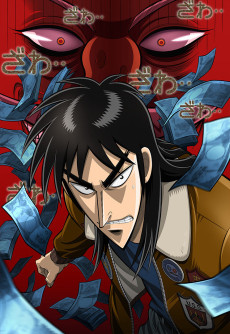 ANIME PsychologicalGyakkyou Burai Kaiji: Ultimate Survivor
ANIME PsychologicalGyakkyou Burai Kaiji: Ultimate Survivor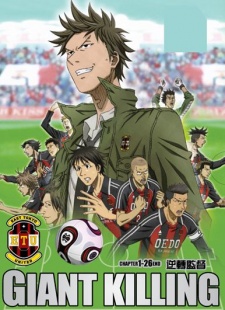 ANIME DramaGIANT KILLING
ANIME DramaGIANT KILLING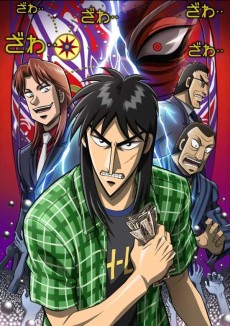 ANIME PsychologicalGyakkyou Burai Kaiji: Hakairoku-hen
ANIME PsychologicalGyakkyou Burai Kaiji: Hakairoku-hen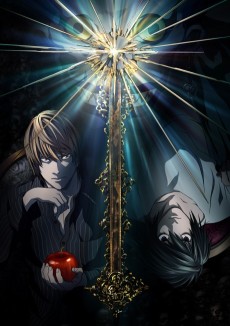 ANIME MysteryDEATH NOTE
ANIME MysteryDEATH NOTE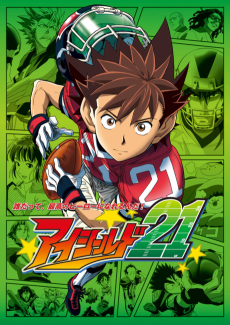 ANIME ActionEyeshield 21
ANIME ActionEyeshield 21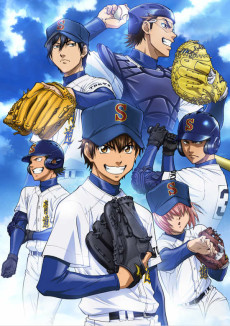 ANIME SportsDiamond no Ace
ANIME SportsDiamond no Ace
SCORE
- (4.05/5)
MORE INFO
Ended inApril 1, 2009
Main Studio MADHOUSE
Favorited by 1,283 Users

